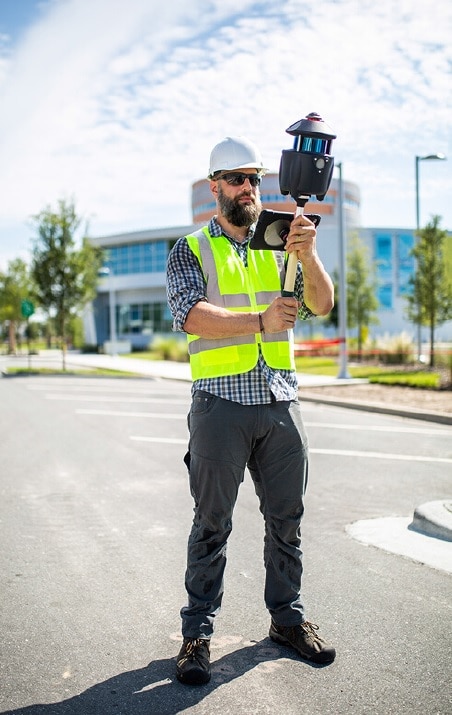The construction industry is being driven forward by technology innovations that significantly enhance efficiency and productivity on site. Companies that are quick to embrace these advancements will leverage several benefits over the long term that positively impact their profitability, says Databuild CEO Morag Evans.
“With time and data becoming increasingly important commodities in the construction landscape, these new technologies are geared to helping industry professionals better manage their time by providing them with more qualitative data.”
Evans cites mobile 3D LiDAR (Light Detection and Ranging) scanning as an example which is rapidly gaining impetus on construction sites, both locally and across the globe.
“The technology enables industry professionals to capture and manage data conveniently and accurately, resulting in substantial time and cost savings, as well as improved productivity.”
Calvin Ettish, co-founder of Archi-Tech, a company that provides software, hardware and service solutions for documenting and mapping geospatial environments, expounded on the uses and benefits of deploying mobile LiDAR scanning in construction projects during a webinar hosted by Databuild.
“New to the South African market, mobile 3D LiDAR scanners are used to generate point clouds, which comprise millions of single spatial measurements (points) on the external surfaces of objects,” he explained. “Using a process called registration, point cloud scans are stitched together to produce an accurate three-dimensional representation of a captured environment (reality capture), which can then be used across a number of use cases, like scan to BIM (building information model).”
“The mobile scanners incorporate SLAM (simultaneous localisation and mapping) imaging technology, which allows for more mobility and flexibility in the data capturing process, making it quicker than traditional methods and more affordable.”
According to Ettish, the deployment of mobile 3D LiDAR scanning technology holds a myriad of benefits that positively impact users across the construction value chain.
“Traditional surveying methods are not only time-consuming – often taking days or weeks to complete – but are also limited in their ability to capture rugged terrain or smaller spaces due to their stationary structure. With mobile 3D LiDAR scanning, however, information can be captured quickly and accurately without the need for GPS (global positioning system), which means fewer visits to site to verify plans, particularly crucial in these pandemic-ridden times of required social distancing.”
BIM models produced from lidar scans provide unparalleled accuracy and can save on up to 80 per cent of design time, Ettish continued.
“It has become the norm to include a contingency of up to 30 per cent over and above the initial project budget to cater for inaccurate or incomplete costings on certain materials or jobs needed to complete the project.
“Thanks to LiDAR scanning, however, the data captured is correct from the outset, which enables the production of accurate drawings. This in turn means fewer change orders down the line, enabling the project to stay on schedule and within the allocated budget.
“BIM models and point clouds also facilitate seamless collaboration between other professionals and contractors involved on a project. Supporting software enables the synchronisation of design and building processes which allows participants to work simultaneously on one project from a single source of accurate information.”
“With only 24 hours in a day at their disposal, industry construction role players need to harness the tools available that help improve workflows and minimise errors,” says Evans. “Rather than view mobile 3D scanning technology as a threat to their existence, industry professionals should utilise this and other technologies to structure their businesses to be more successful.”
For more information, go to: https://www.databuild.co.za/
Ends
About Databuild
Databuild is a knowledge hub for the construction and related industries and acknowledged as the source of all intelligence required by all stakeholders in the industry. The company supports this expertise with a spectrum of services, including its flagship offering Databuild Online, a dynamic and detailed online database of contacts, projects and tender opportunities available in South Africa and other African countries. Clients have access to reliable and real-time information to proactively and timeously market products and services to the right industry players and thus increase business opportunities throughout the industry supply chain.
For more information contact:
CEO: Morag Evans
Tel: 086 088 9999
Email: [email protected]

